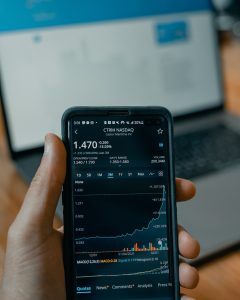Forex trading is the largest financial market in the world, with an average daily turnover of over $5 trillion. It’s no surprise that many people are interested in trading forex, whether it’s as a primary source of income or as a way to diversify their investment portfolio. However, before you start trading forex, you need to understand what a forex broker is and what they do.
A forex broker is a company that provides traders with access to the foreign exchange market. They act as intermediaries between traders and the market, executing trades on behalf of their clients. Forex brokers are essential for retail traders because they provide access to the forex market that would otherwise be inaccessible due to the high entry barriers.
Forex brokers typically offer traders access to a range of financial instruments, including currency pairs, commodities, indices, and cryptocurrencies. They also provide traders with trading platforms that allow them to execute trades, access market data, and manage their accounts.
There are two types of forex brokers: market makers and ECN/STP brokers. Market makers act as a counterparty to their clients’ trades, meaning that when a client buys or sells a currency pair, the market maker takes the opposite position. This means that the broker profits from the spread, which is the difference between the buy and sell price. Market makers are also known as dealing desk brokers, and they are the most common type of forex broker.
On the other hand, ECN/STP brokers provide traders with direct access to the interbank market, where the largest financial institutions trade currencies. ECN/STP brokers act as intermediaries, matching buyers and sellers in the market. They charge a commission for their services, rather than making money from the spread, which makes them more transparent than market makers.
When choosing a forex broker, there are several factors that traders need to consider. The first is regulation. Forex brokers are regulated by financial authorities in various countries, such as the Financial Conduct Authority (FCA) in the UK, the National Futures Association (NFA) in the US, and the Australian Securities and Investments Commission (ASIC) in Australia. Regulation ensures that brokers operate in a fair and transparent manner, protect their clients’ funds, and adhere to strict standards of conduct.
Traders also need to consider the trading platform offered by the broker. The platform should be user-friendly, stable, and offer a range of features that suit the trader’s needs. Some popular trading platforms include MetaTrader 4 and 5, cTrader, and TradingView.
Another factor to consider is the broker’s fees and commissions. Different brokers charge different fees, and traders need to ensure that they understand the costs involved in trading with a particular broker. Some brokers offer commission-free trading, but they may have wider spreads or hidden fees.
Finally, traders need to consider the broker’s customer support. The forex market operates 24 hours a day, five days a week, which means that traders may need assistance at any time. The broker should offer responsive customer support via phone, email, or live chat.
In conclusion, a forex broker is an essential intermediary for retail traders who want to access the foreign exchange market. They provide traders with access to a range of financial instruments, trading platforms, and customer support. When choosing a forex broker, traders need to consider factors such as regulation, trading platforms, fees, and customer support to ensure that they find a broker that meets their needs.






